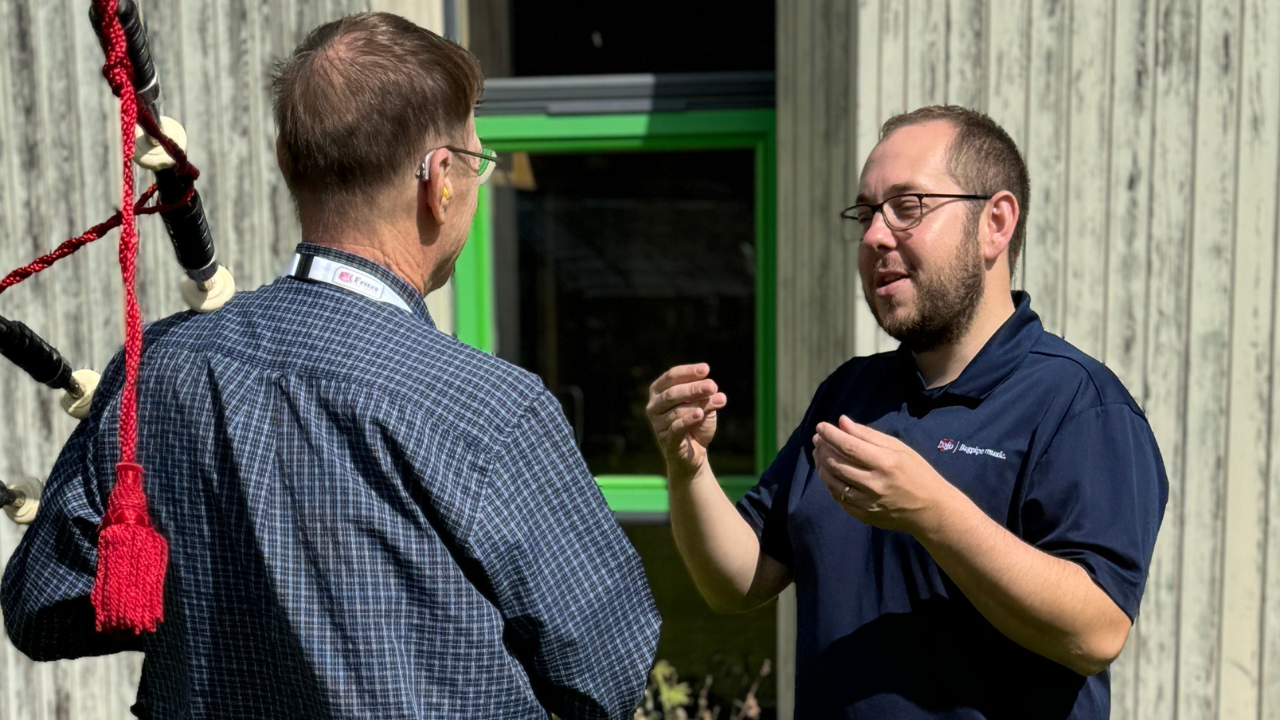Why Mentorship Matters
Apr 14, 2025
Learning to play the bagpipes isn’t easy.
So whether you're starting out as a kid or picking up the chanter later in life, having someone to guide you can make all the difference.
A mentor isn’t just a teacher – they’re a motivator, a sounding board, a compass when things get frustrating or confusing.
Let's look at why mentors can have such a pivotal role in our piping progression – and how to become a great one yourself.
Early Mentorship: From Curiosity to Confidence
When young pipers are just getting started, they're often drawn in by a family tradition or the novelty of the instrument itself. But turning curiosity into skill takes more than a few YouTube tutorials. It takes someone who not only has the skill to teach fingerwork and tunes, but who can also share and shape a love of the music, harnessing that early-learner-enthusiasm to keep it fun.
That kind of influence stays with you. It’s not just about hitting the right notes; it’s about falling in love with the journey.
And if you’re thinking mentorship is only for the young, think again. Plenty of adult learners step into the world of piping with just as much enthusiasm (and maybe a few more life commitments to juggle).
Mentors for adult learners offer something truly special: guidance with patience, understanding, and a recognition of the unique path that brought someone to the pipes in the first place. Often teaching adults requires more patience, and long-term guidance. Good mentors know, and share, that it’s not about becoming the best – it’s about becoming better than yesterday. After all, we're all learners really, just at a different stage in our musical journey.
What Makes a Great Mentor?
Many of us, if we stay at this for long enough, will help other pipers along in their journey. So how do you go from showing someone where to place their fingers on a chanter, to making an impact that will stay with them for life?
A good mantra to remember is that "people don't always remember exactly what you taught them, but they'll remember how you made them feel". A great example of this, in my own personal experience, is Jim Clough. He’s a quiet hero, and certainly not a piping household name or "celebrity", but ask around and you’ll hear how his calm, steady mentorship has shaped countless players. Jim didn’t need a spotlight – he just showed up, consistently and generously.
And that’s often what makes a mentor unforgettable. You don’t have to be famous, or even a great player, to make an impact; you just have to care. Be there to support. Offer structure. Be someone in their corner. That’s the real value of mentorship – it transforms potential into progress.
And it’s a reminder to all of us that we never really outgrow the need to learn from someone else.
Building a Culture of Support, One Tune at a Time
Mentorship doesn’t always have to be formal, either. Sometimes, it's just a conversation with an experienced player who offers a tip that unlocks a stubborn phrase in your tune.
Other times, it’s showing up to band practice and offering encouragement to a newer player who's struggling with their first competition set.
Whether you're the one giving or receiving that encouragement, you're helping to build a piping culture rooted in care and connection.
Finding Your Mentor – or Becoming One
And if you’re an adult learner wondering where to start – don’t worry, you’re not alone. Finding a mentor might seem intimidating, but chances are, there’s someone nearby who’s willing to help. Piping clubs, workshops, online communities – all of them are great places to connect (shameless plug here to join our Dojo University community – supportive, encouraging, and hailing from across the globe!).
And if you’ve been piping for a while, maybe it’s time to consider becoming a mentor yourself. You’d be surprised how much you have to offer, even if you don’t feel like an expert. And you may also be surprised at how much teaching others helps you to learn and improve in your own playing and mindset. I can speak from experience when I say that learner enthusiasm is infectious!
Mentorship in piping is about building relationships, preserving tradition, and creating a space where everyone feels they belong.
So if someone has helped you along the way – why not take a few minutes today to reach out and say thank you. And if you ever find yourself in a position to guide someone else – just say yes.
Check out this week's podcast (link below) as we dive into the role of mentors in my piping journey, and how it helped shape me into the player – and person – I am today.
Stay connected - subscribe to our free Weekly Digest!
Get bagpipe knowledge delivered to you every Monday! Tips and tricks, podcasts, special offers, and more.
We hate SPAM. We will never sell your information, for any reason.



